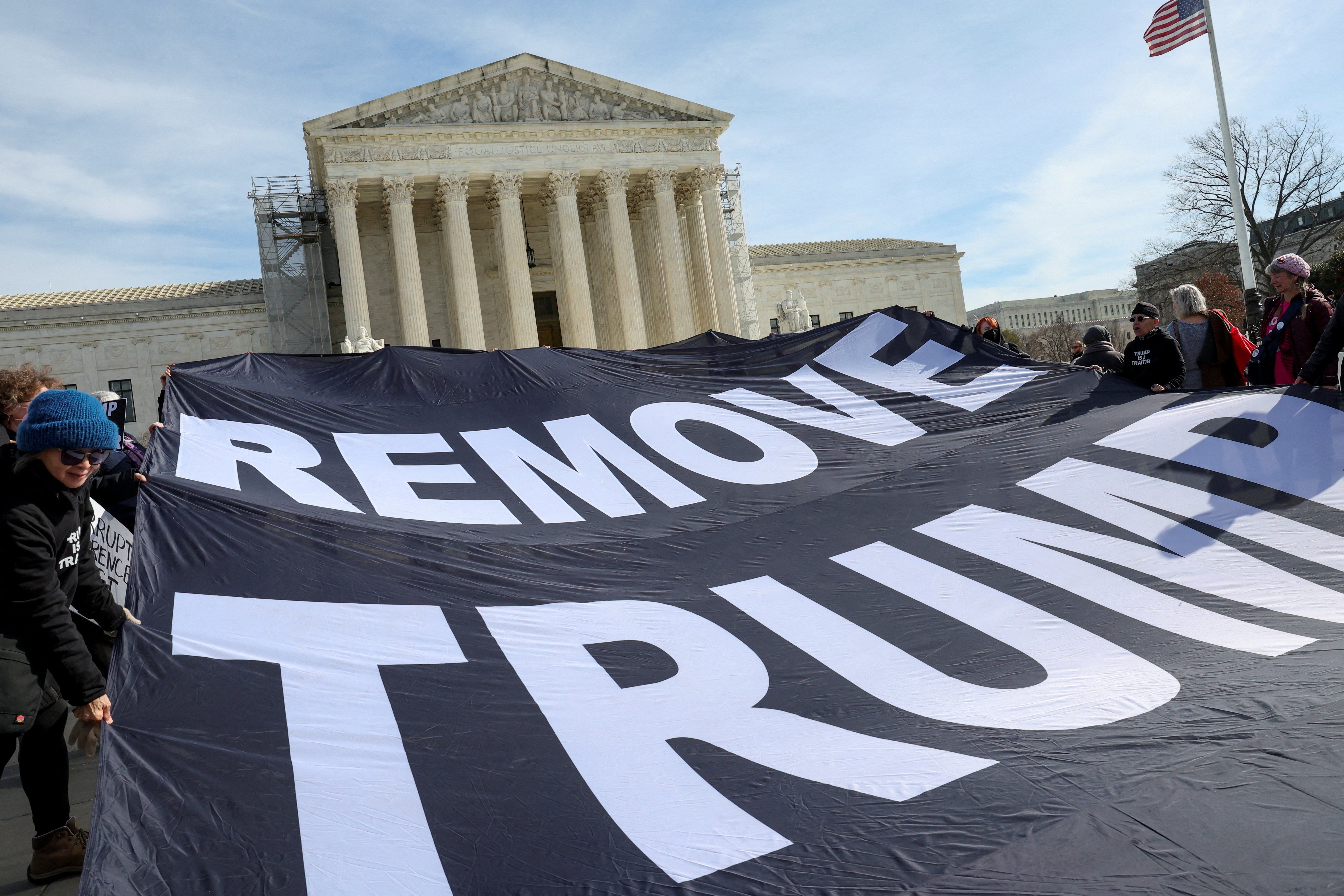On Thursday, the Supreme Court considered a case that could determine whether Donald Trump can be barred from Colorado’s primary ballot – its most direct involvement in an election since Bush v. Gore.
The two main issues were whether the president is considered an “officer of the United States” and so ineligible for reelection if found guilty of insurrection under the 14th Amendment, and whether disqualifying him would require congressional approval.
SCOTUS is likely to rule in Trump’s favor. Chief Justice John Roberts pointed out that the 14th Amendment was enacted to restrict state power, and that letting states decide candidate eligibility could have snowballing implications if partisans make a habit of trying to disqualify their opposition.
The question is whether SCOTUS will issue a broad opinion about Trump’s eligibility for the general election to preemptively squash future 14th Amendment legal challenges. Several justices have indicated they might.
The court hasn’t said when it will issue its decision, only that it is likely to come before Colorado’s primary election on March 5, aka Super Tuesday.
